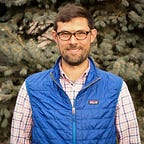Faced with dire climate change warnings from his own agency, Interior Secretary Zinke steps on the gas
After stocking his department with oil and gas lobbyists, Zinke goes full speed ahead on drilling and mining
Last week, as most Americans celebrated Thanksgiving, the Trump administration quietly released two stunning reports detailing the current and forecasted impacts of climate change to the United States. The comprehensive studies concluded that the United States is already seeing impacts — from coastal flooding to increased wildfires — and that fossil fuels extracted from our national public lands are playing a key role. Instead of heeding the word of our nation’s top scientists, Interior Secretary Ryan Zinke sought to undermine their work with false mischaracterizations and forge ahead with efforts to dramatically increase drilling and mining.
Climate change is already hitting the West
Across the country, and particularly in the Southwest, climate change is impacting communities. According to the National Climate Assessment, compiled by 13 government agencies, temperatures have risen across the region, driving steep increases in the area burned by wildfires. Scientists estimate that the area burned between 1984 and 2015 has more than doubled as a result of climate change. Decades of drought have significantly reduced streamflows. Lake Mead, a critical reservoir on the Colorado River, has lost 60 percent of its volume since 2000. Sea levels have risen off California’s coast, including a 9 inch rise at the Golden Gate since 1854. As the population of the West continues to boom, climate change will present a host of challenges — reducing water supplies, taxing an already stressed electricity supply, threatening agriculture, and increasing the risk of heat-associated deaths and illnesses.
Oil, gas, and coal from public lands are a key driver
Fossil fuels have long been extracted from public lands across the West. Now, a study by the U.S. Geological Survey has found that between 2005 and 2014 emissions from those fossil fuels — both their combustion and emissions released during their extraction — account for 24 percent of carbon dioxide released nationwide. According to the report, some of the leading sources of emissions include coal mined from Wyoming and methane leaks and venting from oil and gas operations in New Mexico and Colorado.
Secretary Zinke plows past his own scientists to bury his head in the sand
In Ryan Zinke’s Interior Department, climate change has become something akin to Voldemort — that which must not be named. The phrase was quietly scrubbed from the agency’s five-year strategic plan and references to climate change were virtually eliminated from the Interior Department website. In the face of record wildfires and searing droughts, Zinke has acknowledged that summers are longer and hotter, but has resorted to verbal gymnastics to avoid uttering those two words.
Now, Zinke is casting doubt on the two climate reports, authored in part by top scientists in his own agency. Speaking to local TV news in Sacramento, Zinke admitted that he had not read the National Climate Assessment report, then offered the following critique:
“There appears to be some concern with the USGS — the U.S. Geological Survey — that’s the nation’s top scientific body. It appears, and again we are looking closely, I have a brief when I get back, it appears they took the worse scenarios and they built predictions on that. It should be more probability, but we’re looking at it.”
This line of attack, that the report relied on worst-case scenarios, was echoed by White House Press Secretary Sarah Huckabee Sanders in a coordinated attempt to discredit the painstaking work of their own administration. Predictably, this argument is not based on facts — Texas Tech researcher Katherine Hayhoe, who authored the climate scenarios section of the report, noted “I wrote the climate scenarios chapter myself, so I can confirm it considers ALL scenarios.”
Full speed ahead on drilling and mining
Though the conclusion of our nation’s top scientists is that we are driving towards a climate cliff, already experiencing harmful impacts with more severe ones on the way, Secretary Zinke’s response has been to hit the accelerator. Under his watch, the Interior Department has placed more than 13 million acres of public lands on the auction block to be leased for oil and gas development, including prime locations next to national parks and monuments. Further, the agency has eliminated regulations that require drillers on public lands to reduce the venting and flaring of natural gas, sending more potent emissions into the atmosphere. Along with eliminating more than 2 million acres from national monuments in Utah, opening them up to drilling and mining, the list of handouts to industry just goes on and on.
These actions aren’t totally surprising, as Zinke has loaded his staff with lobbyists from the oil, gas, and coal industries, most notably Deputy Interior Secretary David Bernhardt, whose extensive work for oil and gas companies has led him to be nicknamed “a walking conflict of interest.” Should Zinke be fired or forced to resign over his mounting ethical scandals, such as a possible criminal investigation into a Montana real estate deal backed by the chairman of Halliburton, Bernhardt would take the reigns of the Interior Department.
After nearly two years in office, it is clear that Secretary Zinke and the Trump administration view climate change only as a public relations nuisance, something to be swept under the rug in favor of delivering handouts to industry. Unfortunately for the agency’s own scientists and for communities around the West, there appears to be no relief in sight.
For more information, sign up for Look West to get daily public lands and energy news sent to your inbox, or subscribe to Go West, Young Podcast.
